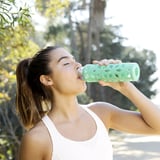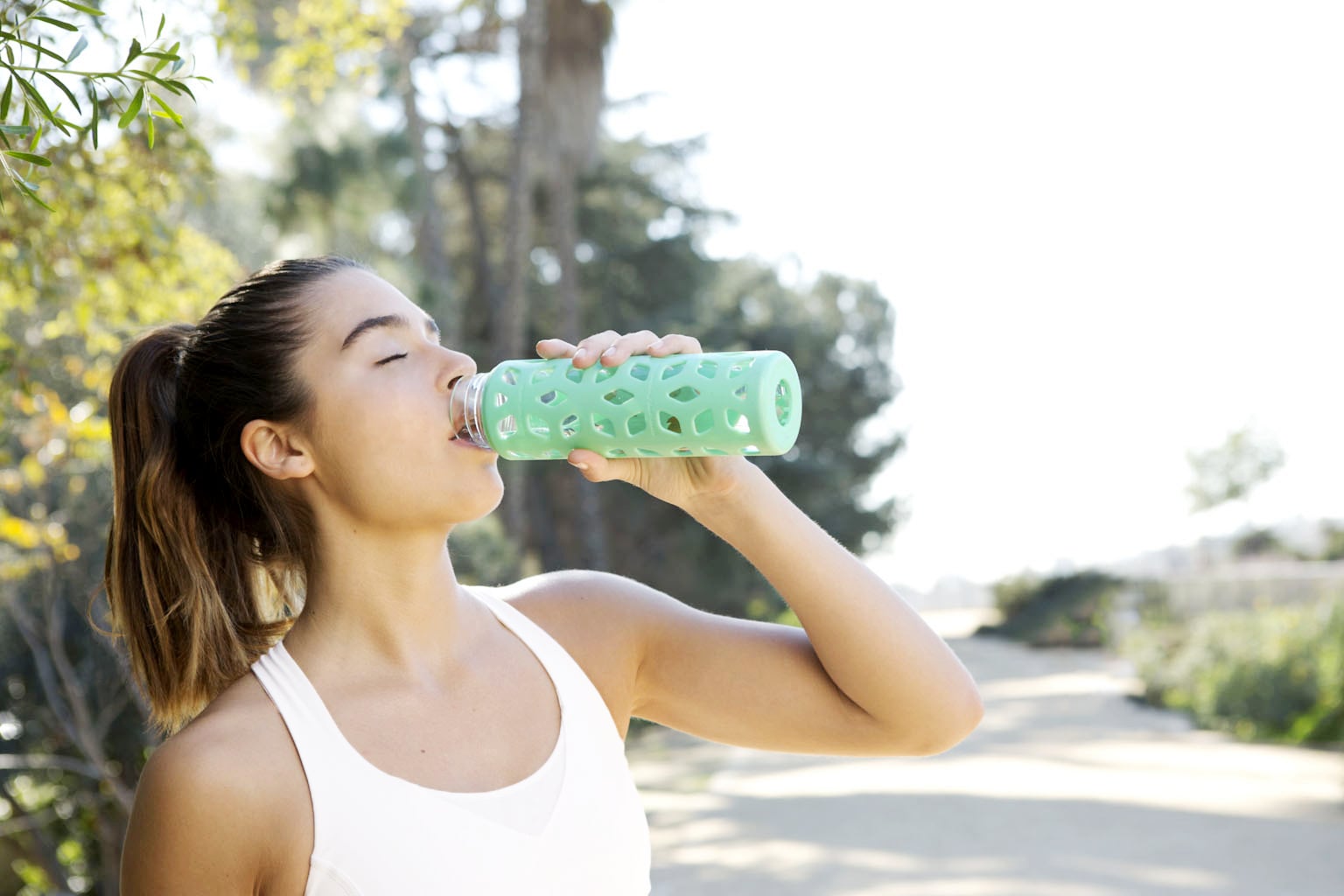

It's surprisingly easy to become dehydrated while intermittent fasting. In fact, you may need to drink water more frequently than you even think.
Consider this: you hydrate the most when you're eating, either from a glass or the water-dense foods on your plate, like fruits and vegetables. So, "dehydration during intermittent fasting is definitely a risk, given that you have fewer meal occasions and potentially day-long stretches between these occasions," Allison Baker, RD, director of retail nutrition at Kroger, told POPSUGAR.
During those fasting windows, you can and should still drink water. "Water needs vary depending on the individual, but a good rule of thumb is 2.2 liters for women and 3 liters for men," explained Samantha Presicci, lead dietitian at Snap Kitchen. "Our actual hydration need is higher, but about 20 percent of it is met through food, assuming that we're eating adequate fruits and vegetables."
In order to stay hydrated and prevent pesky symptoms like bloating and headaches, Allison suggests making water a part of your routine, just as you would a meal or snack. So, if you used to eat early in the morning or late at night before you began intermittent fasting, make it a point to reach for water at those times. Filling up on water may even help prevent any hunger pangs you experience until your body adjusts to eating in a tighter window.
Of course, you can also just set a daily goal of two to three liters, and make a concerted effort to drink that much during the day. One thing that can help? "For the same reason we say to keep junk food out of sight, we say to keep your water by your side all day long," Allison said. "This will encourage passive intake and help you meet your hydration goals."

0 comments :
Post a Comment